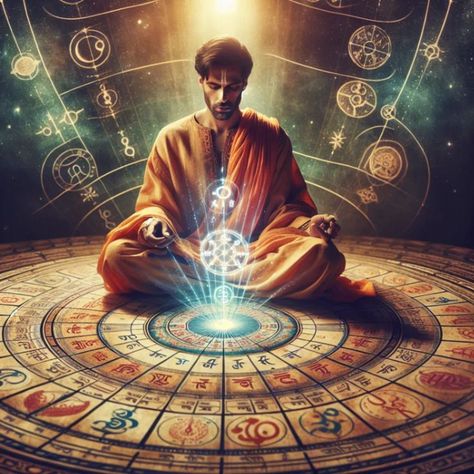No.1 Jyotish Vedic Astrology: The Ancient Science of Predictions

Exploring Jyotish: The Ancient Art of Jyotish Vedic Astrology
Jyotish Vedic astrology, also known as Jyotish, is an ancient system that has guided individuals in understanding their lives and destinies for thousands of years. Rooted in the sacred texts of the Vedas, Jyotish translates to "the science of light," emphasizing its focus on the celestial bodies and their influence on human affairs. This article delves into the principles, components, and significance of Jyotish in modern life.
The Origins of Jyotish
The origins of Jyotish can be traced back to ancient India, where it was developed by sages who sought to understand the cosmos and its impact on human existence. The system is believed to have emerged between 5,000 BC and 10,000 BC, intertwined with other spiritual practices such as yoga and Ayurveda. Unlike Western astrology, which primarily focuses on the Sun's position, Vedic astrology employs a sidereal zodiac that aligns with the actual positions of stars and constellations.
Key Components of Jyotish
-
The Birth Chart (Kundali): The foundation of Vedic astrology lies in the birth chart, which maps the positions of celestial bodies at the exact moment of an individual's birth. This chart provides insights into personality traits, strengths, weaknesses, and potential life events.
- Houses: The birth chart is divided into twelve houses, each representing different aspects of life such as relationships, career, health, and spirituality. The placement of planets within these houses influences various life experiences.
- Nakshatras: Vedic astrology recognizes 27 lunar mansions or Nakshatras that play a crucial role in determining an individual's characteristics and life path. Each Nakshatra is associated with specific qualities and influences based on the Moon's position at birth.
- Yogas: These are combinations of planetary positions that create specific effects in an individual's life. Certain Yogas can indicate success in career or relationships, while others may suggest challenges.
- Dasha System: The Dasha system divides a person's life into periods ruled by different planets. Each planetary period brings unique influences and opportunities, allowing astrologers to predict significant events based on the active Dasha.
- Transits (Gocharas): As planets continue to move after a person's birth, their transits affect the natal chart's planets. Studying these movements helps astrologers understand current influences on an individual’s life.
The Role of Jyotish in Daily Life
Jyotish serves multiple purposes in contemporary society:
-
Self-Understanding: By analyzing one's birth chart, individuals can gain insights into their personality traits and behavioral patterns. This self-awareness fosters personal growth and development.
- Decision Making: Jyotish can guide individuals in making important life decisions such as career choices, relationship commitments, and financial investments by highlighting auspicious times for action.
- Relationship Compatibility: Vedic astrology offers tools for assessing compatibility between partners through Kundali matching. This practice helps couples understand their dynamics and potential challenges.
- Timing Events: Jyotish provides valuable information about favorable times for significant events like weddings or business launches through auspicious muhurta (timing).
The Spiritual Aspect of Jyotish
Beyond practical applications, Jyotish is deeply spiritual. It encourages individuals to reflect on their life's purpose and karmic lessons. By understanding the influences of celestial bodies, one can cultivate a sense of acceptance towards life's challenges and embrace growth opportunities. The ultimate goal of Jyotish is to aid individuals in their journey toward Moksha, or liberation from the cycle of rebirth. It serves as a tool for self-discovery and enlightenment, helping individuals align their actions with their higher purpose.
